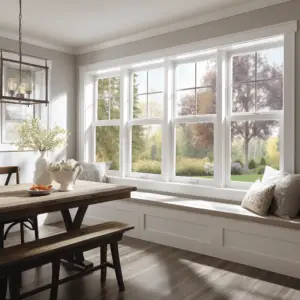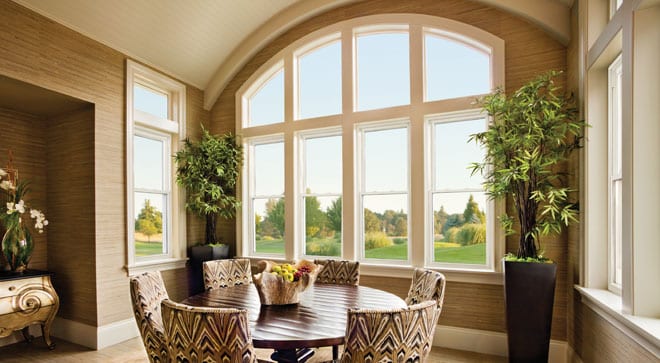Alside vs Milgard Windows, are two of the most well-known window manufacturers in the industry. Both have been around for decades, and both have a great reputation for quality products. If you’re in the market for new windows, you’re likely to come across these brands.
But how do they compare? Which one is better? Are they equally good? Here’s a quick overview of Alside vs Milgard Windows.
Table of Contents
Alside vs Milgard Windows: Brand Overview

Milgard Windows & Doors is a family-owned business that was founded in 1962. Milgard has manufacturing facilities in Washington state and California as well as sales offices throughout the United States. It manufactures vinyl, aluminum, and fiberglass windows, entry doors, patio doors, and sliding glass doors for residential and commercial customers.
Alside is one of the largest vinyl window manufacturers in North America. The company was founded in 1954 and has been growing ever since. It now has more than 500 employees and operates out of multiple locations across the country.
Alside and Milgard are two of the top names in the window and door business. They have been around for decades, so they have a proven track record of quality and service.
These two brands are both top-quality window manufacturers, but they are different in many ways. Both companies have a long history of making high-quality products, but when comparing them side by side, there are a few key differences that stand out.
Alside vs Milgard: Differences
Both Alside and Milgard windows are excellent choices for homeowners looking for new windows. Both companies are leaders in the window industry, and both offer a wide range of products that can help improve your home’s energy efficiency.
While both companies offer a variety of styles, their vary in some respects. Here’s how they stack up:
Window Types
The bulk of Alside windows are extruded vinyl, a stiff material that can be shaped. Its low cost and light weight make it easy to install.
Milgard has various solutions if you want something more durable or energy-efficient than vinyl. Their fiberglass and wood items are durable and won’t fade or stain for decades. Triple-pane glass and low-E coatings increase heat retention and reduce glare in your home, lowering energy expenditures.
With double-hung, casement, and slider types for aluminum, fiberglass, and wood windows, Milgard offers more possibilities. This allows people to choose the perfect product for their home and budget.
Installation
One of the most important considerations when choosing replacement windows is whether or not they can be installed by a do-it-yourselfer or if professional installation is required. If you plan to install the replacement windows yourself, it is important that they come with detailed instructions and all necessary hardware for installation.
Alside offers several different types of vinyl windows that a do-it-yourselfer can install with varying degrees of difficulty depending on the type chosen. They also have their installers.
Milgard also offers a variety of installation options, including windows that can be installed by the homeowner or by a professional contractor. The type of installation you choose will depend on what’s best for your budget and skill level.
Energy Efficiency
Energy efficiency is a big concern when it comes to buying new windows. This is because they represent a significant investment, and you want them to pay off over time by reducing your energy bills. Alside and Milgard both offer certified energy-efficient windows that can help reduce your monthly utility bills.
Alside and Milgard both have excellent energy ratings. You can find Alside windows with up to a U-factor of 0.28, which is very good for an aluminum window. Milgard windows also have great energy ratings, with many models having ratings as low as 0.25. Both companies use high-quality low-E coatings on their glass, which helps keep your home warmer in winter and cooler in summer by reflecting heat away from your house.
Materials
Alside: Most models are constructed from low-maintenance vinyl frames and glass, but some models have fiberglass frames and aluminum-clad wood sashes. The aluminum is a good choice for homes in coastal areas or those subject to high winds because it won’t warp or bend as wood does.
Milgard: Several of the company’s top-of-the-line products use fiberglass instead of vinyl. Fiberglass is more durable than vinyl and has a longer life expectancy, and it’s also heavier than vinyl and much more energy efficient.
Aluminum clad wood is another common material used by Milgard, and they also offer vinyl and wood-clad aluminum as well as vinyl-clad wood.
Alside vs Milgard Windows: Warranty

Both Alside and Milgard offer lifetime limited warranties on their windows. This means that the company will repair or replace your windows if they are damaged due to manufacturing defects for as long as you own your home. It does not cover damage from other factors, such as poor installation or weather damage.
The warranty for each company is slightly different. For example, Alside offers a limited lifetime warranty on glass breakage and water leakage; Milgard offers similar but slightly more extensive coverage for these issues.
Alside vs Milgard Windows: Price Comparison
While Milgard offers a wide range of products at various price points, Alside tends to be more affordable overall — especially when you look at its vinyl windows. In fact, many homeowners choose Alside because it offers a higher quality product at a lower price point than other competitors.
Alside: average cost per window is $200-$750
Milgard: average cost per window is $300-$1,300
Alside vs Milgard Windows: Which is Better?
So who is better? Alside or Milgard? As with all things, it depends on what you’re looking for. You need to consider your budget, size requirements, and any other special considerations you have when making your selection. Both of these companies make high-quality windows that are available at a wide range of price points.
These two brands have a long history of making quality products for homeowners and businesses alike. Both companies have been in business for over 50 years, so they’ve got experience on their side. And both have been around long enough to have built up a loyal base of customers who swear by their products.


